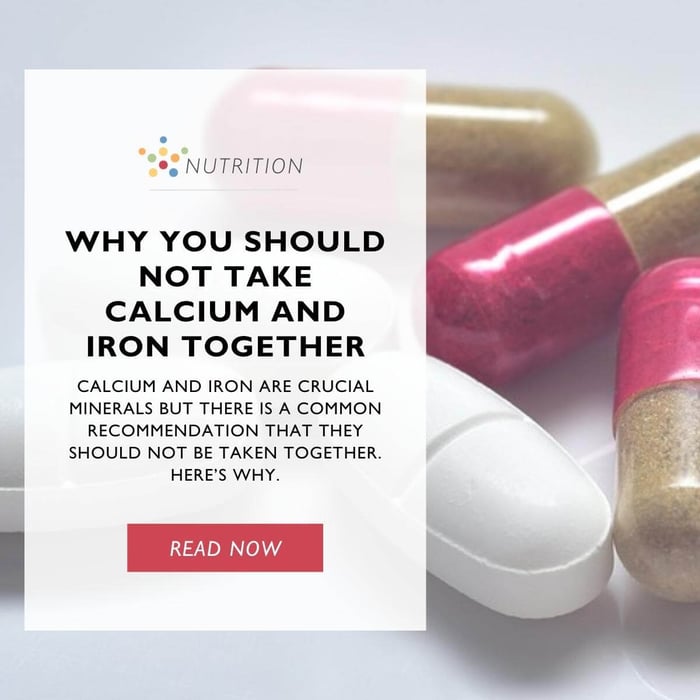Vitamin A Deficiency and Bariatric Surgery
 Taylor Brodie, MS, RDN, LD
Lifestyle
Taylor Brodie, MS, RDN, LD
Lifestyle
October 24th, 2023

Under normal circumstances, dietary vitamin A is readily absorbed. If at least 10 grams of fat is available, almost 70-100% will be absorbed.5,6 Carotenoids on the other hand, have a far less absorption of 20-50%.5,6 The decreased surface area and lower amounts of available lipoproteins after gastric sleeve and other bariatric surgeries is likely to limit retinol and carotenoid absorption even more.7
All forms of vitamin A, including carotenoids, are converted into retinol in the body.6 Retinoic acid is the biologically active form of vit a, initiating differentiation, proliferation, and apoptosis in the cell.4
In order to be stored in the liver, freed retinol must be converted for transport through the lymphatic system.4,5 Once incorporated into cells, they can move out of the enterocyte where they are transferred to peripheral cells, mainly hepatocytes, by endocytosis.2,4,5 The most common forms include retinyl sterate, oleate and linoleate.5 These esters are stored in liver until needed,6 when they are then hydrolyzed back to free retinol to bind to retinol binding proteins.3,4
Factors Influencing Vitamin A and Carotenoid Absorption or Utilization2,5
| Fiber (Pectin) | Interferes with micelle formation |
| Vitamin E | Inhibit carotenoid absorption |
| Zinc | Required for synthesis of vitamin A transport proteins (retinol-binding protein, retinol dehydrogenase) |
| Iron |
Needed for conversion of beta-carotene to retinal; iron deficiency can inhibit intestinal mucosa's ability to absorb vitamin A |
Of the 10% of all carotenoids that are found in food, only three have pro-vitamin A activity. Beta-carotene, alpha-carotene, and beta-cryptoxanthin can be converted into retinol. However, this reaction is iron dependent and can be slowed if protein intake is insufficient.5 This is a pertinent consideration for patients who have had bariatric surgery and struggle with iron deficiency and poor protein intake. Iron metabolism is also dependent on functions of vit A, with inadequate supplies of the vitamin resulting in altered hemoglobin production.2 These bidirectional effects may contribute to why vitamin A deficiency is positively associated iron deficiency anemia.5
The general conversion of beta-carotene to retinol is not particularly efficient. About 12mcg of beta-carotene is needed to create 1 mcg of retinol.5 While carotenoids are needed for optimal health and antioxidant properties, its use as a “back-up” to create pre-vitamin A may not be very productive. As a reserve system, one might expect beta-carotene to decrease when retinol availability is low, however, supplementation studies have shown something different. Low retinol levels did not result in statistically significant declines in beta-carotene.8
While the studies did not include a control that excluded retinol supplementation altogether, it does point to an interesting relationship between vitamin A and carotenoids and contribute to our understanding of proper vitamin A supplement dosage for the population.
BMI has been shown to be negatively associated with serum carotenoids,2 even after adjusting for other markers like intake, white cell, and wait-to-hip ratio.9 However, rapid weight loss from gastric bypass, gastric sleeve, and other bariatric surgeries does not seem to result in elevated serum beta-carotene from the mobilization out of the adipose storage either. 7 Therefore, more is needed to understand the complex relationship between oxidative stress, antioxidant load, and adipose storage in individuals before and after weight loss.
There is a negative association with weight and preformed vitamin A as well. Low serum vitamin A is also associated with higher weight, BMI, and waist circumference.2,3,9 Since Vitamin A is primarily stored in the liver, obesity-related comorbidities that affect the liver like non-alcohol steatohepatitis and cirrhosis are thought to negatively affect vitamin A status.9,11 This is illustrated as individuals with obesity or fatty liver have shown inverse relationships between serum retinol and transaminase levels.3 It is likely that the impaired availability of the vitamin may exacerbate oxidative stress and inflammatory markers that contribute to their progression to NAFLD as well.3 NAFLD has been associated with poor vitamin A storage, decreased vitamin A transport proteins, lower antioxidant levels, and insulin resistance.2
Vitamin A deficiency (VAD) is of concern because it can result in unpleasant optical and dermal symptoms. Initial signs like dry, inflamed eyes with Bitot’s spots can progress to night blindness.8 Anorexia, dry skin, and keratinization of soft tissue have also been observed with VAD.5 If not corrected in a timely matter, vitamin A deficiency can alter long-term respiratory and immune function as well.6
Individuals with biliopancreatic diversion with duodenal switch (BPD DS) are at a higher risk of fat-soluble vitamin deficiency because the interactions between chyme, bile and pancreatic secretions are limited to a short common channel. It was estimated that between the 1- and 4-years bpd ds post-op, prevalence of vitamin A deficiency was between 52-69%.11 Steatorrhea, acute protein deficiency, and acute infections are also risk factors seen with Vitamin A deficiency.5 BPD DS resulted in lower serum levels of vitamin A after surgery, but these individuals did not lose vitamin A any quicker than their RNY (Roux-en-y gastric bypass) counterparts.7 Deficiency after adjustable gastric band (AGB), vertical sleeve gastrectomy (VSG), and RNY are much less common.11 Of these three procedures, prevalence of vitamin A deficiency was seen to be greater after RNY in the initial few months, but it was comparable to VSG after 2 years.9
Regardless of procedure, pre-operative vitamin status may also be an important consideration to avoid future deficiency. One study showed the likelihood of having a post-op VAD 5-12 months after VSG or RNY to be 3-4 times higher if the individual presented with the deficiency pre-op.9 This highlights the importance of pre-operative evaluation of vitamin A status and proper maintenance supplementation.

ASMBS Recommendations for Vitamin A1
From Food and Supplements
| Adjustable Gastric Band (AGB) | 5,000 IU / day |
| Vertical Sleeve Gastrectomy (VSG) | 5,000 - 10,000 IU / day |
| Roux-en-y Gastric Bypass (RNY) | 5,000 - 10,000 IU / day |
| Biliopancreatic Diversion with Duodenal Switch (BPD DS) | 10,000 IU / day |
* Higher doses recommended for those with a history of vitamin A deficiency
** Water-miscible forms help to improve absorption
Studies have continued to examine the optimal supplementation for the prevention of vitamin A deficiency and night blindness after bariatric surgery. Pereira and colleagues separated 90 participants into three groups with various doses of retinol acetate after RNY. One group had vitamin A supplements of 5,000 IU oral daily, another had 10,000 IU oral daily, while the last had 5,000 IU oral with a monthly intramuscular injection of 10,000 IU. The serum vitamin A and beta-carotene concentrations were measured throughout. They found that the most effective improvement in serum levels was found in the group with 10,000 IU daily, as it significantly reduced the prevalence of night blindness. Severe VAD was still present in a few individuals.8 The authors concluded that daily intake of 10,000 IU retinol acetate would be most appropriate for patients after RNY.8
The ASMBS recommends individuals who experience corneal changes after metabolic bariatric surgery increase their daily dose of Vitamin A to 10,000-25,000 IU daily until symptoms resolve. Intramuscular doses are available in these circumstances as well.1 Copper and iron status should also be evaluated during vitamin A deficiency because they may impair the ability to successfully improve vitamin A status.1
Oral supplements of retinol are most commonly found as retinyl esters attached to acetate or palmitate.5,6 Absorption of these vitamins and supplements are around 70-90%.5,6 Generally, vitamin A absorption is high, but it is also optimized when taken at high doses. 10,000 IU daily that is easily absorbed via passive diffusion may promote better absorption than 5,000 IU absorbed by saturable carriers.8 Beta-carotene, on the other hand, has much lower absorption ranging from 9-65% with great variability amongst individuals.6 To account for different absorption and mechanisms, a mix of retinoids and carotenoids is often recommended in dietary supplements.12
Toxicity is a concern for retinoids, as high doses in short- and long-term can cause negative effects. Acute hypervitaminosis A can result in nausea, blurred vision, dizziness, and muscle incoordination if doses exceed 100 times the recommended dietary allowance.5,6 Individuals with chronic toxicity may experience fatigue, anorexia, muscle pain, itchy and or inflamed eyes, and liver damage.5,6 Excess amounts of Vitamin A can act as an antagonist for Vitamin K, inhibiting its absorption as well.5
Having adequate amounts of preformed and provitamin A is important in maintaining antioxidant levels and preventing vitamin A deficiency. Most Celebrate bariatric multivitamins contain a 50/50 blend of retinyl ester and carotenoids. Specifically, retinyl palmitate and beta-carotene are utilized because they provide optimal absorption and utilization within the body. Water-miscible retinyl palmitate ensures that even in the absence of a meal with adequate fat, the vitamin will still be well absorbed.
For individuals who’ve had a BPD DS, the Multi-ADEK bariatric vitamins contain much greater amounts of Vitamin A to account for observations of night blindness and VAD seen in the bariatric population. With 68% beta-carotene and 32% water-miscible retinyl palmitate, this product contains a total of 7,500mcg (25,000 IU) Vitamin A daily.
Vitamin A 3000 mcg (10,000 IU) Capsule

$9.99
Our Vitamin A supplement is 100% retinyl palmitate and provides patients with a therapeutic dose of 3,000 mcg of dry, water miscible vitamin A in a small, easy to swallow capsule.… read more
Vitamin A 3000 mcg (10,000 IU) Capsule

$9.99
Our Vitamin A supplement is 100% retinyl palmitate and provides patients with a therapeutic dose of 3,000 mcg of dry, water miscible vitamin A in a small, easy to swallow capsule.… read more
Resources
- Mechanick JI, Apovian C, Brethauer S, et al. CLINICAL PRACTICE GUIDELINES FOR THE PERIOPERATIVE NUTRITION, METABOLIC, AND NONSURGICAL SUPPORT OF PATIENTS UNDERGOING BARIATRIC PROCEDURES - 2019 UPDATE: COSPONSORED BY AMERICAN ASSOCIATION OF CLINICAL ENDOCRINOLOGISTS/AMERICAN COLLEGE OF ENDOCRINOLOGY, THE OBESITY SOCIETY, AMERICAN SOCIETY FOR METABOLIC & BARIATRIC SURGERY, OBESITY MEDICINE ASSOCIATION, AND AMERICAN SOCIETY OF ANESTHESIOLOGISTS - EXECUTIVE SUMMARY. Endocr Pract. 2019;25(12):1346-1359. doi:10.4158/GL-2019-0406
- Chaves GV, Pereira SE, Saboya CJ, Ramalho A. Nutritional status of vitamin A in morbid obesity before and after Roux-en-Y gastric bypass. Obesity Surgery. 2007;17:970-976.
- Botella-Carretero JI, Balsa JA, Vázquez C, Peromingo R, Díaz-Enriquez M, Escobar-Morreale HF. Retinol and α-Tocopherol in Morbid Obesity and Nonalcoholic Fatty Liver Disease. Obesity Surgery. 2020;20:69-76. doi:10.1007/s11695-008-9686-5
- Das BC, Thapa P, Karki R, et al. Retinoic Acid Signaling Pathways in Development and Diseases. Bioorg Med Chem. 2014;22(2):673. doi:10.1016/J.BMC.2013.11.025
- Gropper SS, Smith JL, Carr TP. Advanced Nutrition and Human Metabolism. 7th Edition. (Gropper SS, Smith JL, Carr TP, eds.). Cengage Learning; 2018.
- Vitamin A and Carotenoids - Health Professional Fact Sheet. Accessed March 27, 2022. https://ods.od.nih.gov/factsheets/VitaminA-HealthProfessional/
- Granado-Lorencio F, Simal-Antón A, Blanco-Navarro I, González-Dominguez T, Pérez-Sacristán B. Depletion of Serum Carotenoid and Other Fat-Soluble Vitamin Concentrations following Obesity Surgery. Obesity Surgery. 2011;21:1605-1611. doi:10.1007/s11695-011-0413-2
- Pereira S, Saboya C, Ramalho A. Impact of Different Protocols of Nutritional Supplements on the Status of Vitamin A in Class III Obese Patients after Roux-en-Y Gastric Bypass. Obesity Surgery. 2013;23:1244-1251. doi:10.1007/s11695-013-0885-3
- Jalilvand A, Blaszczak A, Needleman B, Hsueh W, Noria S. Vitamin A Deficiency in Patients Undergoing Sleeve Gastrectomy and Gastric Bypass: A 2-Year, Single-Center Review. Journal of Laparoendoscopic and Advanced Surgical Techniques. 2020;30(1):20-30. doi:10.1089/lap.2019.0627
- Ciobârcă D, Florinela Cătoi A, Copăescu C, Miere D, Cris G. Bariatric Surgery in Obesity: Effects on Gut Microbiota and Micronutrient Status. Nutrients. 2020;12(235):1-27. doi:10.3390/nu12010235
- Sawaya RA, Jaffe J, Friedenberg L, Friedenberg FK. Vitamin, Mineral, and Drug Absorption Following Bariatric Surgery. Curr Drug Metab. 2012;13(9):1345. doi:10.2174/138920012803341339
- Weight Management Dietetic Practice Group. Pocket Guide to Bariatric Surgery. Third Edition. (Isom KA, Majumdar MC, eds.).; 2022.



